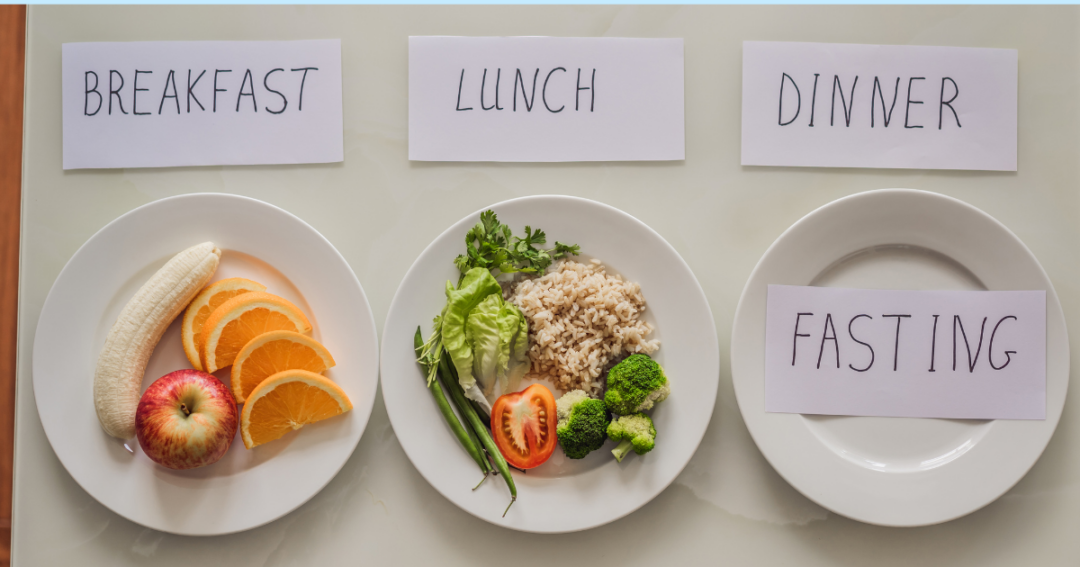Are you tired of counting calories and feeling restricted by traditional diets? Intermittent fasting (IF) might be the solution you’ve been searching for. This powerful dietary approach not only simplifies your eating habits but can also lead to significant health benefits, such as weight loss, improved metabolic health, and increased longevity. Before diving into intermittent fasting, however, it’s essential to understand the basics and ensure it’s the right fit for you.
Disclaimer: While intermittent fasting can be safe and effective for many people, individual results and experiences may vary. Always listen to your body and make adjustments to ensure a healthy and sustainable approach. If you have any concerns or experience adverse effects, please seek professional guidance.
What is Intermittent Fasting?
Intermittent fasting is not about what you eat but when you eat. It involves cycling between periods of eating and fasting, allowing your body to enter a state where it can efficiently burn fat and improve overall health. Studies have shown that intermittent fasting can help with weight loss, enhance insulin sensitivity, and reduce inflammation.
How Does Intermittent Fasting Work?
When you eat, your body breaks down carbohydrates into glucose, which enters your bloodstream and provides energy to your organs. Excess glucose is stored as glycogen in your liver and as fat in your body’s tissues. During fasting, your body depletes its glycogen reserves and begins to burn stored fat for energy.
Here’s a closer look at what happens in your body during intermittent fasting:
- Glycogen Depletion: After about 10 to 12 hours of fasting, your liver’s glycogen stores are depleted. If you’re active, this process may happen even faster.
- Fat Burning: Once glycogen is used up, your body starts breaking down stored fat into free fatty acids, which are then converted into energy. This process can help with weight loss and fat reduction.
- Insulin Regulation: Fasting helps lower insulin levels, reducing the risk of insulin resistance—a precursor to diabetes.
- Brain Health: Fasting promotes the production of neurotrophic factors, which support neuron growth and survival, enhancing cognitive function.
Who Should Avoid Intermittent Fasting?
Intermittent fasting isn’t for everyone. It’s not recommended for children, teens, pregnant or breastfeeding women, individuals with eating disorders, people with certain medical conditions, or those who are underweight or frail. Additionally, fasting can be unsafe if taken to extremes, so it’s essential to approach it with caution.
Choosing Your Fasting Method
There are several popular methods of intermittent fasting. Choosing the right one depends on your lifestyle, preferences, and goals. Here are some of the most common approaches:
- The 16/8 Method: Fast for 16 hours and eat during an 8-hour window (e.g., skip breakfast and eat only lunch and dinner).
- The 5:2 Method: Eat normally for five days and restrict calorie intake to 500-600 calories on two non-consecutive days.
- Eat-Stop-Eat: Fast for 24 hours once or twice a week.
- Alternate-Day Fasting: Fast every other day, with a small meal allowed on fasting days.
How to Start Intermittent Fasting
- Evaluate Your Lifestyle: Choose a method that fits your daily routine. The 16/8 method is a popular choice because it’s relatively easy to sustain.
- Gradually Extend Fasting Periods: Start by gradually increasing your fasting window. For example, if you usually fast for 10 hours overnight, try extending it by an hour each day until you reach your desired fasting period.
- Stay Hydrated: Drink plenty of water, black coffee, or unsweetened tea during fasting periods to stay hydrated and curb hunger. Avoid sugary drinks and limit caffeine intake.
- Break Your Fast Wisely: When it’s time to eat, choose nutrient-dense foods like lean proteins, healthy fats, and complex carbohydrates. Avoid overeating or indulging in low-nutrient, high-calorie foods.
- Monitor Your Progress: Keep track of your fasting periods, eating habits, and any changes in weight or energy levels. This will help you identify patterns and make adjustments as needed.
Ready to Start Your Fasting Journey?
Intermittent fasting can be your golden ticket to a healthier, happier life. With this step-by-step guide, you’re well on your way to embracing this transformative eating pattern. Remember, patience is key—give your body time to adjust and start reaping the incredible benefits of intermittent fasting.
If you’re looking for additional support, consider joining our 28-DAY CHALLENGE PROGRAM that includes individualized nutrition coaching. Book a strategy call today to learn more about our habit-based nutrition coaching and how it can complement your intermittent fasting journey.
Start your intermittent fasting journey today and experience the difference it can make in your health and well-being!

